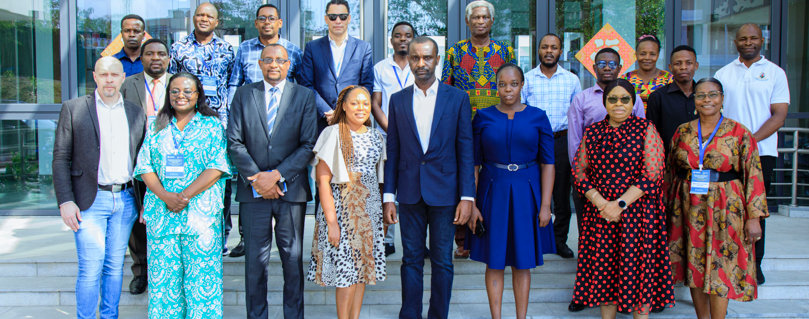BTH researcher strengthens AI expertise at African universities – opens doors for international collaboration

Niklas Lavesson, Professor of Software Engineering focusing on applied AI, has recently returned from a trip to Tanzania, where he led a training programme on artificial intelligence (AI) in higher education. Invited by the Association of African Universities, he shared knowledge about the opportunities and challenges of AI with some 20 delegates from eight different African countries, including vice-chancellors, researchers and policymakers.
The three-day training covered hot topics such as generative AI and its impact on higher education, including how to deal with AI-generated reports, which jobs in the higher education sector are at risk of disappearing, and the introduction of legislation or AI policies.
One of the participants in the training was Professor Rosemary Okoh, Vice-Chancellor of Delta State University in Nigeria:
“Professor Lavesson made the subject of AI easily understandable to a multi-disciplinary audience. The presentation covered a wide range of issues and gave direction for responsible use of AI in Universities as well as identifying cost and benefits of adopting AI in university management and administration, and for faculty and students”, she states.
The opportunity to organise the training came through Niklas Lavesson’s collaboration with the University of Cape Coast in Ghana. Solomon Faakye, Head of Legal Affairs at this university, saw a need for a skills development course for employees at African universities on the use of AI in higher education. He, therefore, turned to Niklas Lavesson, who took on the assignment.
“It was a fantastic experience. The delegates were very engaged and interested in developing their AI capacity. However, I was careful to emphasise that the possibilities and limitations of the technology are my focus, not the legal aspects. But it feels very rewarding that BTH can contribute to this,” says Niklas Lavesson.
The training programme is part of a larger collaboration between BTH and African universities, including the University of Cape Coast and Kwame Nkrumah University of Science and Technology in Ghana. One concrete outcome of the training is the proposal for future collaborations, including assisting in the start-up of a new university in Congo and holding more AI training programmes at African universities.
“We see enormous potential in this collaboration, both to strengthen African universities and to open up new opportunities for students and researchers from both continents,” says Niklas.
With this initiative, BTH promotes AI development globally while strengthening relations between Europe and Africa.
27 January 2025